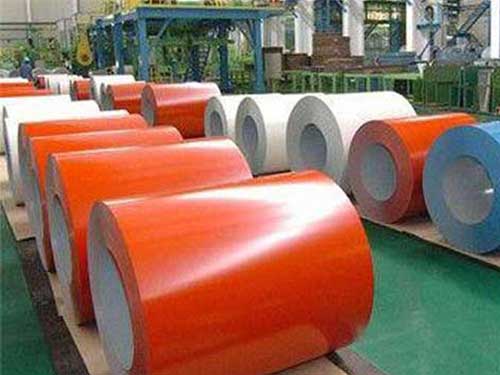Aluminum coil 1050a h24
Aluminum coil 1050A H24 is a versatile and widely used aluminum product integral to various industries ranging from construction and automotive to electrical and manufacturing. its functions, technical specifications, alloy tempering, and chemical properties offers valuable insight into why this product stands out and how it fulfills specific industrial requirements.
What is Aluminum Coil 1050A H24?
At its core, aluminum coil 1050A H24 consists of an aluminum alloy with excellent corrosion resistance, outstanding thermal and electrical conductivity, and workability. The "1050A" denotes the alloy grade, which comprises 99.5% pure aluminum, making it known in the trade as "pure aluminum." The temper designation “H24” describes a strain-hardened condition with partial annealing. This treatment imparts medium strength and moderate ductility to the metal, striking a balanced combination of flexibility and resilience, ideal for cold working without compromising formability.
1050A H24 aluminum coil is a workhorse around here. Its high purity and soft temper (H24) make it incredibly versatile, but that also means it's less robust than some of our other alloys. We see it primarily used in applications demanding excellent formability and corrosion resistance, like food packaging, chemical processing equipment, and some architectural components. Personally, I've noticed that the slight variation in gauge we sometimes see from different batches can be a headache for our downstream processes. A seemingly minor difference can lead to issues in stamping or drawing, necessitating adjustments to the tooling or even rejecting a whole coil. Precise control over the manufacturing process is crucial to maintaining consistent quality with this specific alloy, and we're always looking at ways to improve our incoming inspection protocols.
Beyond the technical specifications, 1050A H24 holds a certain quiet dignity in our production line. It's not flashy like some of the more exotic alloys, but its reliability is undeniable. It’s the dependable workhorse everyone knows and trusts. I often find myself appreciating the sheer volume we process – a testament to its widespread use. However, the increasing demand also highlights the pressure to optimize our handling and processing techniques. Minimizing waste and ensuring efficient coil transportation are always top of mind, as even small improvements in efficiency can translate to significant savings and reduce our environmental impact. The challenge lies in striking a
Distinctive Functional Advantages
1. Superior Corrosion Resistance
1050A aluminum coil resists oxidation and corrosion, especially in atmospheric and mildly corrosive environments. This attribute extends the longevity of products made using these coils, minimizing maintenance needs.
2. High Thermal and Electrical Conductivity
The near-pure aluminum composition facilitates excellent heat and electrical flow, making the coil especially useful in heat exchangers, electrical enclosures, and conductor cables.
3. Enhanced Workability and Formability
H24 temper delivers partial strain hardening; thus, the aluminum remains flexible enough to be cold-formed into complex geometries (such as pipes, louvers, or heat exchanger fins) while possessing mechanical strength that supports structural integrity.
4. Lightweight Yet Durable
Lightness of aluminum reduces transportation and handling costs while delivering requisite strength for many light structural applications where weight-saving is strategic.
Standard Parameters of Aluminum Coil 1050A H24
| Parameter | Specification |
|---|---|
| Alloy Grade | 1050A (Aluminum, 99.5% purity) |
| Temper Designation | H24 (strain hardened, partially annealed) |
| Standard Thickness Range | 0.2 mm to 3 mm |
| Width Range | 100 mm to 2000 mm |
| Yield Strength (@ H24) | Approximately 70-110 MPa |
| Tensile Strength (@ H24) | 90-130 MPa |
| Elongation | >10% (varies with thickness) |
| Density | 2.70 g/cm³ |
Chemical Composition of 1050A Aluminum Alloy
| Element | Content (%) Range |
|---|---|
| Aluminum (Al) | Balance (≥ 99.5) |
| Copper (Cu) | ≤ 0.05 |
| Iron (Fe) | ≤ 0.40 |
| Manganese (Mn) | ≤ 0.05 |
| Silicon (Si) | ≤ 0.25 |
| Magnesium (Mg) | ≤ 0.05 |
| Zinc (Zn) | ≤ 0.05 |
| Titanium (Ti) | ≤ 0.03 |
| Others Combined | ≤ 0.15 |
This chemical purity supports the aluminum coil’s excellent corrosion resistance and exceptional electrical-and thermal-conductive properties.
Implementation Standards: Quality & Industry Benchmarks
Aluminum 1050A H24 coils are manufactured and inspected following strict quality control regimes per internation standards including:
- ASTM B209 – Aluminum and Aluminum-Alloy Sheet and Plate
- EN 485-2 – Aluminum and Aluminum Alloys – Sheet, Strip, and Plate – Part 2: Mechanical Properties
- JIS H4000 – Japanese Industrial Standards for Aluminum and Aluminum Alloy Sheet and Plate
These standards ensure consistency in mechanical performance, surface finish quality, coil dimensions, and material chemistry ideal for industrial applications.
Applications of Aluminum Coil 1050A H24
1. Electrical Industry
1050A's excellent conductivity makes it popular for conductors in transformers, motors, capacitors, and busbars. The H24 temper optimally balances ductility and strength essential for bending and forming electrical components.
2. Architectural and Construction
Used in cladding, roofing sheets, ceilings, eaves, ducts, and window frames—where corrosion resistance, weather-proofing, and fabricability are critical.
3. Packaging Sector
Due to resistance against corrosion and chemical inertness, this alloy is employed in foil packaging, flexible packaging wraps, and bottle caps.
4. Thermal Management
Coils form parts such as heat sinks, cooling fins, and heat exchangers where heat dissipation along with mechanical resilience is mandatory.
5. Automotive Parts
Its lightweight attribute combined with moderate hardness suits manufacturing lightweight panels, inner trim parts, and crash-resistant components.
Alloy Tempering: Why H24?
The H24 temper marries partially hardened tensile strength with flexibility resulting from controlled strain hardening, crucial for benefits like:
- Improved Fabrication through enhanced ductility permitting bending and shaping
- Moderate Mechanical Strength adequate for structural machine parts enabling moderate load bearing while controlling weight
- Maintenance of Surface Finish, offering smooth and clean surfaces improving visual characteristics for decorative panels
Temper levels usually get selected aligned with intended application manipulation techniques and strength requirements, ensuring optimized and cost-effective performance.



